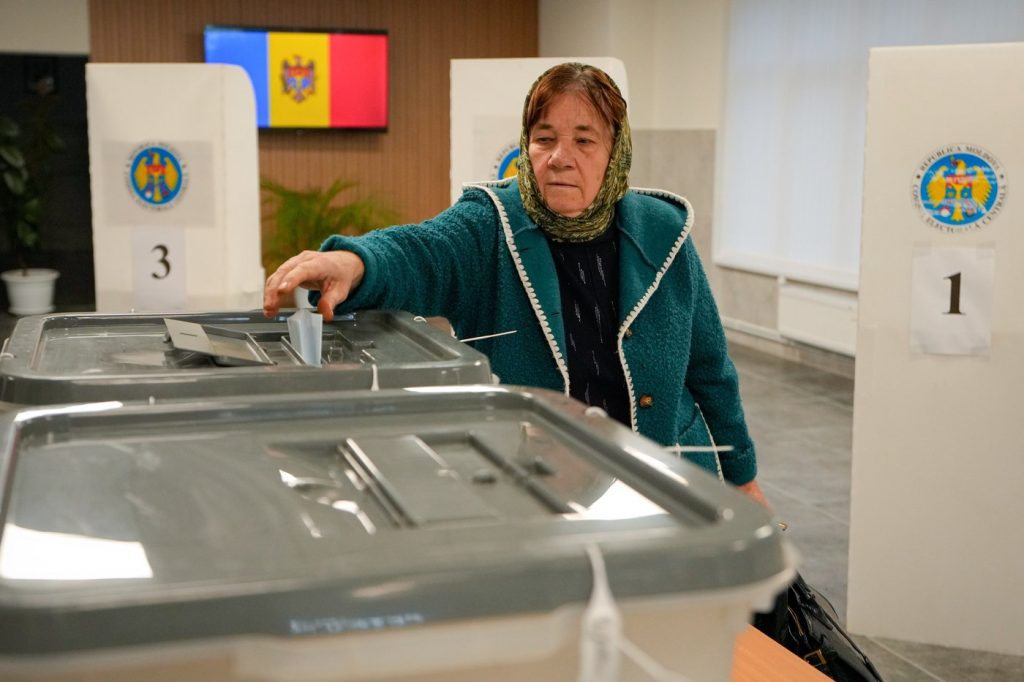On Sunday, Moldovans are anticipated to head to the polls in a significant parliamentary election characterized by heightened tensions and allegations of Russian interference. This election is being viewed as a critical juncture, offering voters a choice between deeper integration with the European Union or a potential shift away from the West toward Moscow's influence.
The upcoming vote will decide the composition of Moldova's new 101-seat parliament. Following the election, the president of Moldova will nominate a prime minister from the leading party or electoral bloc, which will subsequently attempt to establish a new government contingent upon parliamentary approval.
The contest is primarily between the ruling pro-Western Party of Action and Solidarity (PAS), which has maintained a dominant parliamentary majority since 2021 but now faces the possibility of losing that status, and several opposing factions friendly to Russia. Notably absent are any viable pro-European alternatives, casting uncertainty over the electoral outcomes and the future geopolitical direction of Moldova.
Located between Ukraine and Romania, an EU member state, Moldova is home to approximately 2.5 million residents. In recent years, the country has notably shifted toward the West, having attained EU candidate status in 2022, just after Russia's full-scale invasion of Ukraine.
In a warning issued just days before the election, Prime Minister Dorin Recean cautioned that Russia has been allegedly deploying hundreds of millions of euros in a so-called "hybrid war" aimed at undermining Moldova's government. He labeled the forthcoming election as "the final battle for our country's future," calling on Moldovans both at home and abroad to remain vigilant against Russian schemes.
The suspected Russian tactics reportedly include an expansive vote-buying scheme, cyberattacks targeting essential governmental infrastructure, plans to incite mass riots around election time, and a widespread disinformation campaign designed to weaken public support for the pro-European ruling party and bolster pro-Moscow candidates.
Russia has consistently denied any interference in Moldova and dismissed these allegations as "anti-Russian" and "unsubstantiated." Meanwhile, local authorities have expressed concerns that election day could be marred by false bomb threats, cyberattacks, temporary power outages, and potential street violence orchestrated by trained individuals. In anticipation of the vote, law enforcement has conducted numerous raids, resulting in the detention of many individuals.
The active Moldovan diaspora is anticipated to play a crucial role in determining the election's outcome. In the previous year's presidential runoff—perceived as another pivotal vote between Eastern and Western influences—over 327,000 voters cast their ballots from abroad, with more than 82% supporting pro-Western President Maia Sandu, which ultimately facilitated her reelection.
A notable contender against PAS in this election is the pro-Russian Patriotic Electoral Bloc, a coalition advocating for stronger ties with Russia and advocating for a stance of permanent neutrality. Other competing parties include the populist Our Party, which promotes a balanced foreign policy between East and West, and the Alternativa Bloc, which purports to be pro-European but is criticized for potentially leaning toward closer ties with Moscow.
Moldova has faced significant challenges in recent years, including rampant inflation, rising living costs, and high poverty rates, which may have adversely affected support for the ruling pro-European party founded by Sandu in 2016. Despite local polls suggesting that PAS may still secure the highest number of votes, they do not account for the substantial diaspora vote, with approximately one-third of voters remaining undecided at this time. Voter turnout in the previous parliamentary election was just over 48%.
Iulian Groza, executive director of the Institute for European Policies and Reforms, predicts that higher turnout could favor PAS in attaining a majority. He points out that public support for governing parties typically erodes over time, especially amid ongoing crises, but notes that Moldova has remained resilient against Russian aggression over the past four years.











